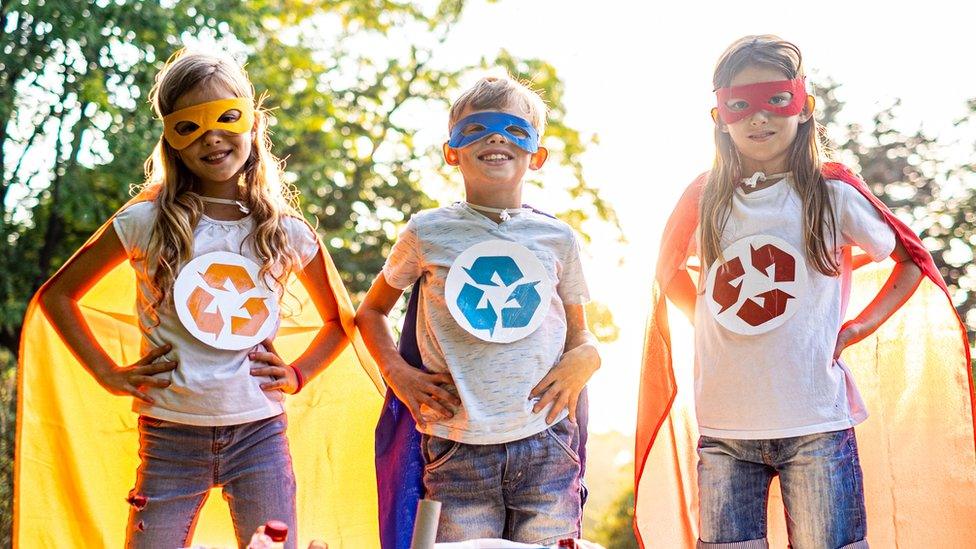Plastic pollution: Charity calls on supermarkets to get rid of plastic packaging
- Published
- comments
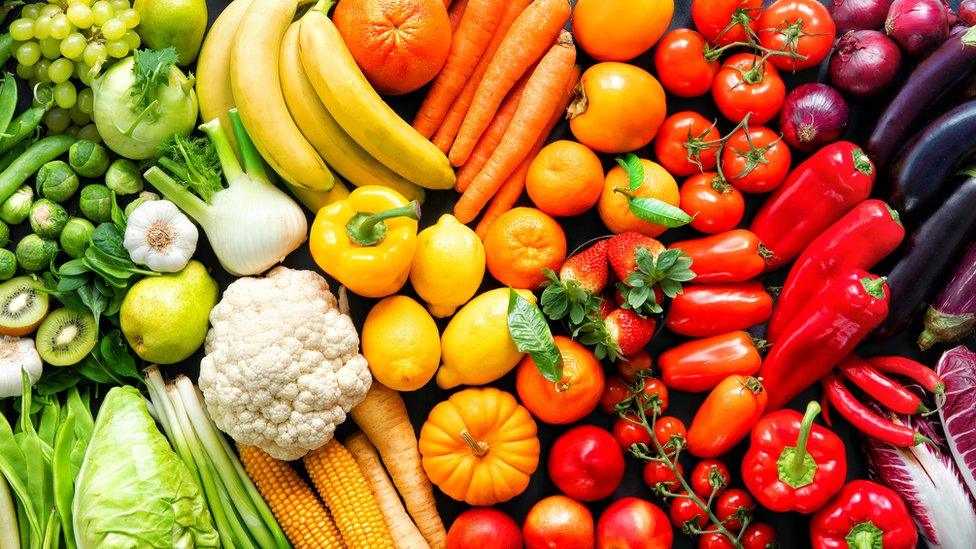
Wrap studied five different fruit and veg products to see how packaging affected their shelf lives
A charity is calling on UK supermarkets to sell fresh fruit and vegetables without plastic packaging or best before dates attached, in order to prevent them being wasted.
The waste reduction charity Wrap has also said that apples and other products should be stored in the fridge to prevent them going off, and want this information provided to customers by food shops.
These recommendations come in a report that studied five different types of fruit and veg, and the charity are calling it a "game-changer".
What did the charity do?
Wrap's report states 40% of food we produce around the world gets wasted.
This is bad for the environment and contributes to climate change, as food production releases greenhouse gases into our atmosphere that warm our planet up.
So they decided to study five commonly wasted items over an 18 month period - apples, bananas, broccoli, cucumber and potatoes.
They compared how quickly they went off when stored in the original packaging and when loose, and at different temperatures.
The charity found that selling the five items loose and removing best before dates could result in a combined yearly saving of around 100,000 tonnes of household food waste, more than 10,300 tonnes of plastic and 130,000 tonnes of CO2 equivalent.
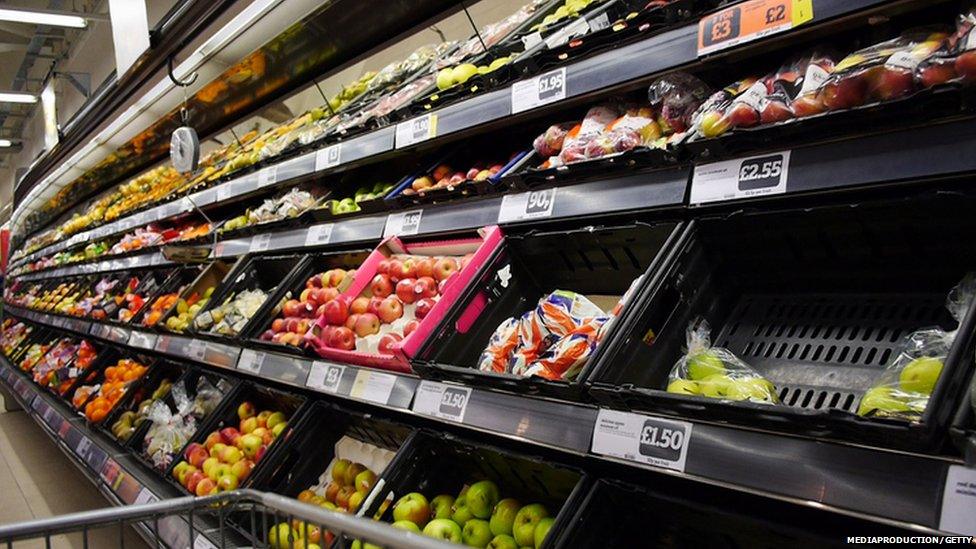
Wrap wants shelves like these to have a lot less plastic
What do they want supermarkets to do?
Wrap are asking supermarkets to do three things:
Sell loose - remove all plastic packaging from uncut fruit and veg.
Remove date labels - get rid of best before dates on uncut produce, unless it can be shown that adding one reduces food waste.
Provide best practice guidance on storage - give customers instructions on how to store their food in order for it to last longer.
Most supermarkets already sell some of their fresh produce loose, but the charity thinks that their new evidence shows it should be the case for more products on shelves.
Wrap said it had shared its findings and recommendations with the UK's largest food shops but acknowledged that putting them in place was "likely to take time".
Wrap chief executive Marcus Gover said: "This important research could be a game-changer in the fight against food waste and plastic pollution.
"We need retailers to step up and follow our recommendations so we can achieve real progress in tackling food waste and plastic pollution. This helps save the planet and us money at the same time - a real win-win."
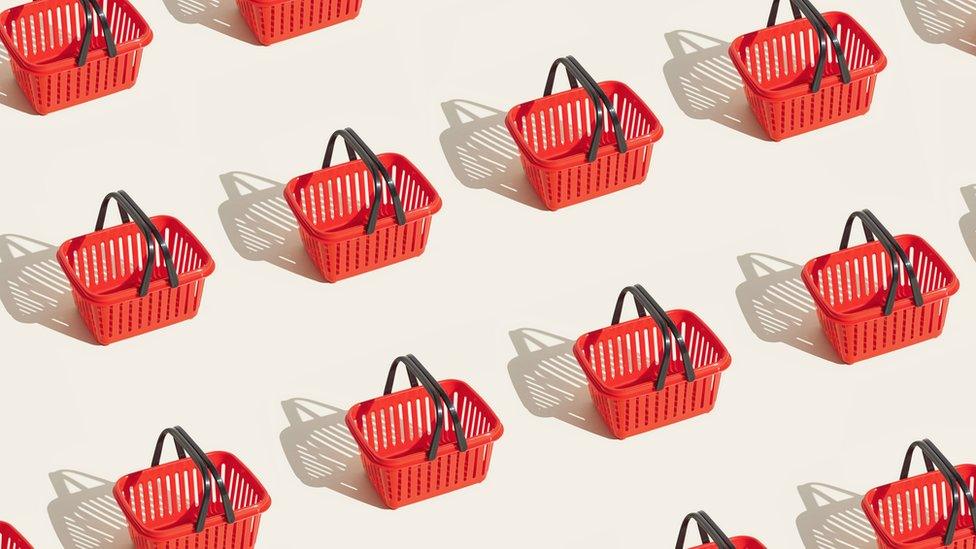
Wrap say that if supermarkets take on board their recommendations, 14 million shopping baskets worth of food could be saved from being wasted
What have shops said?
The British Retail Consortium (BRC) is a group that represents the interests of shops across the UK.
Their Director of Food & Sustainability, Andrew Opie, said in response to the report: "Retailers have led the way in reducing plastic and food waste. WRAP's report covers areas many retailers are already trialling in their stores to assess how we can make more progress.
"The key, as the report confirms, will be ensuring consumer acceptance and adapting our supply chains to avoid inadvertently adding waste in stores or with our suppliers."
Lidl, Aldi and Asda all said that the BRC 's comments represented their views on the report.
Sainsbury's added: "We are committed to reducing our use of plastic packaging by 50% by 2025.
"Packaging helps us deliver fresh, undamaged produce, but we know that it can have a negative impact on our planet, which is why reducing plastic across our operations and supply chain is one of our key priorities.
"We are also committed to reaching our target of reducing food waste by 50% by 2030 and have reduced this by 16% already."
- Published17 July 2020
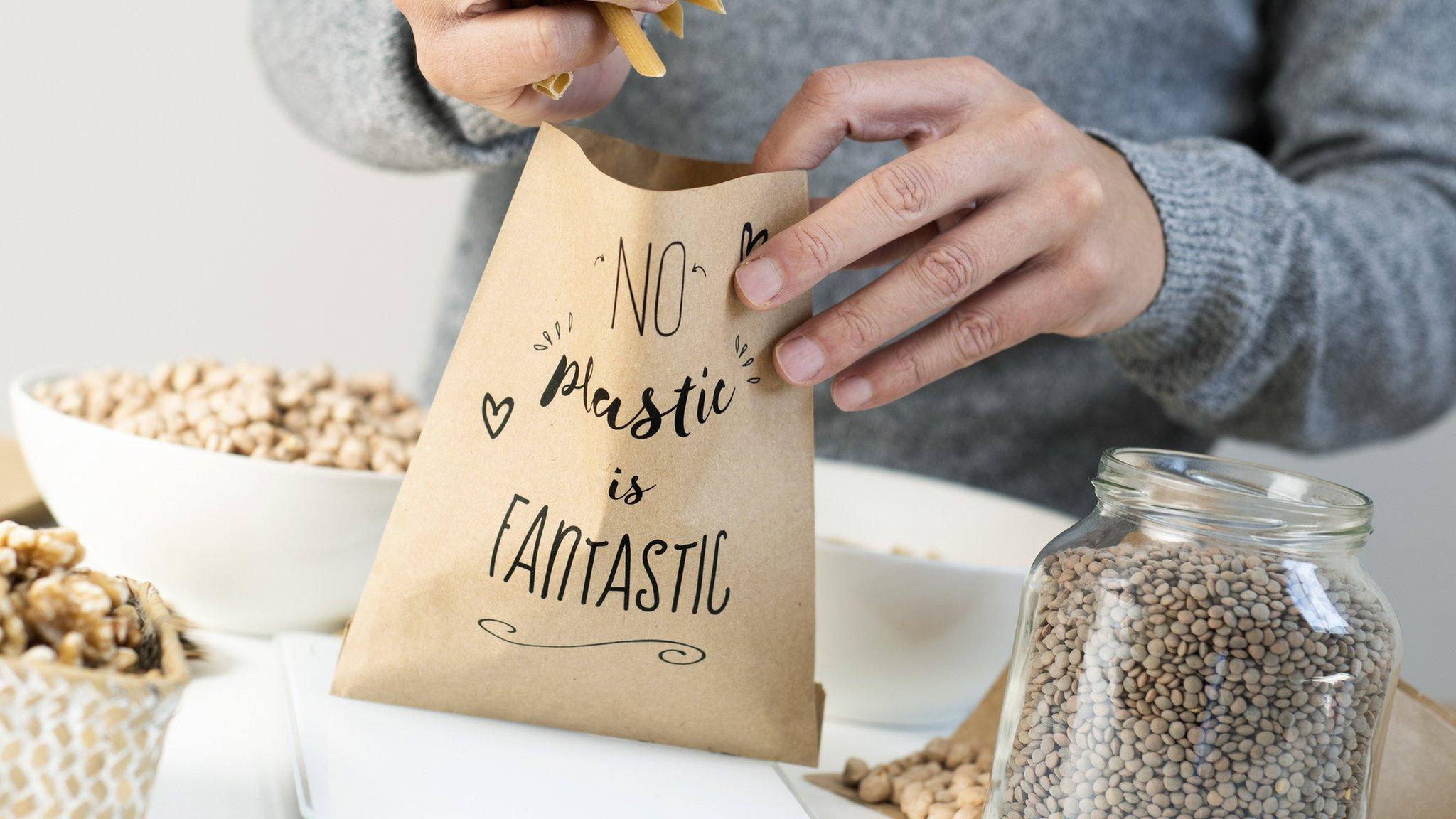
- Published14 March 2019
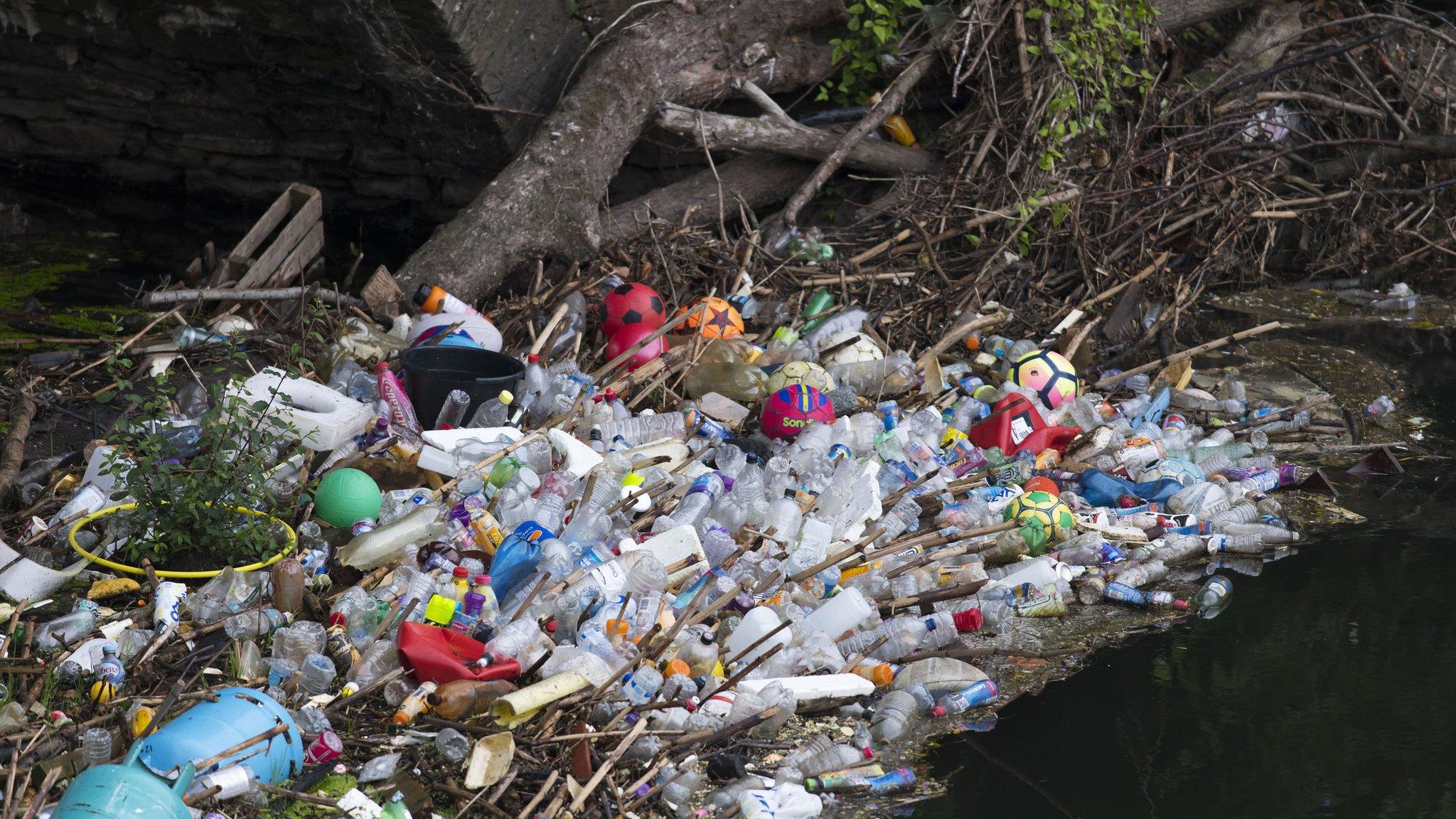
- Published1 September 2020
